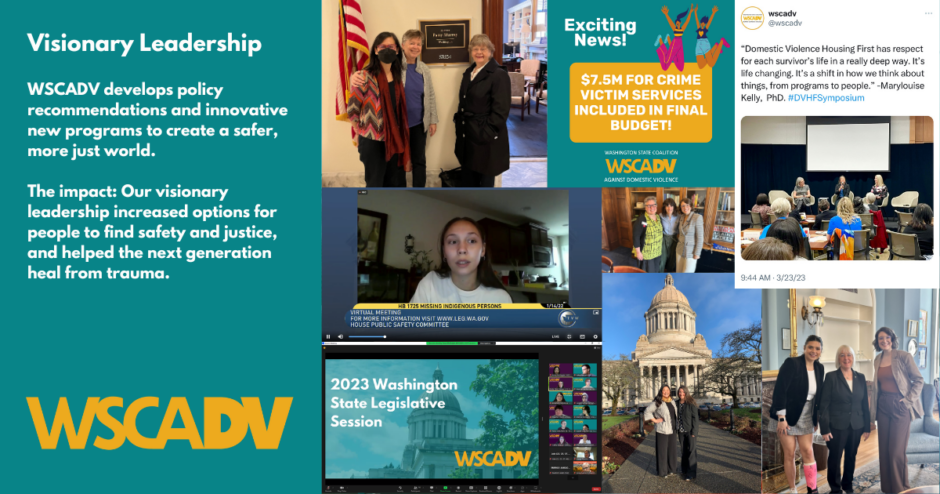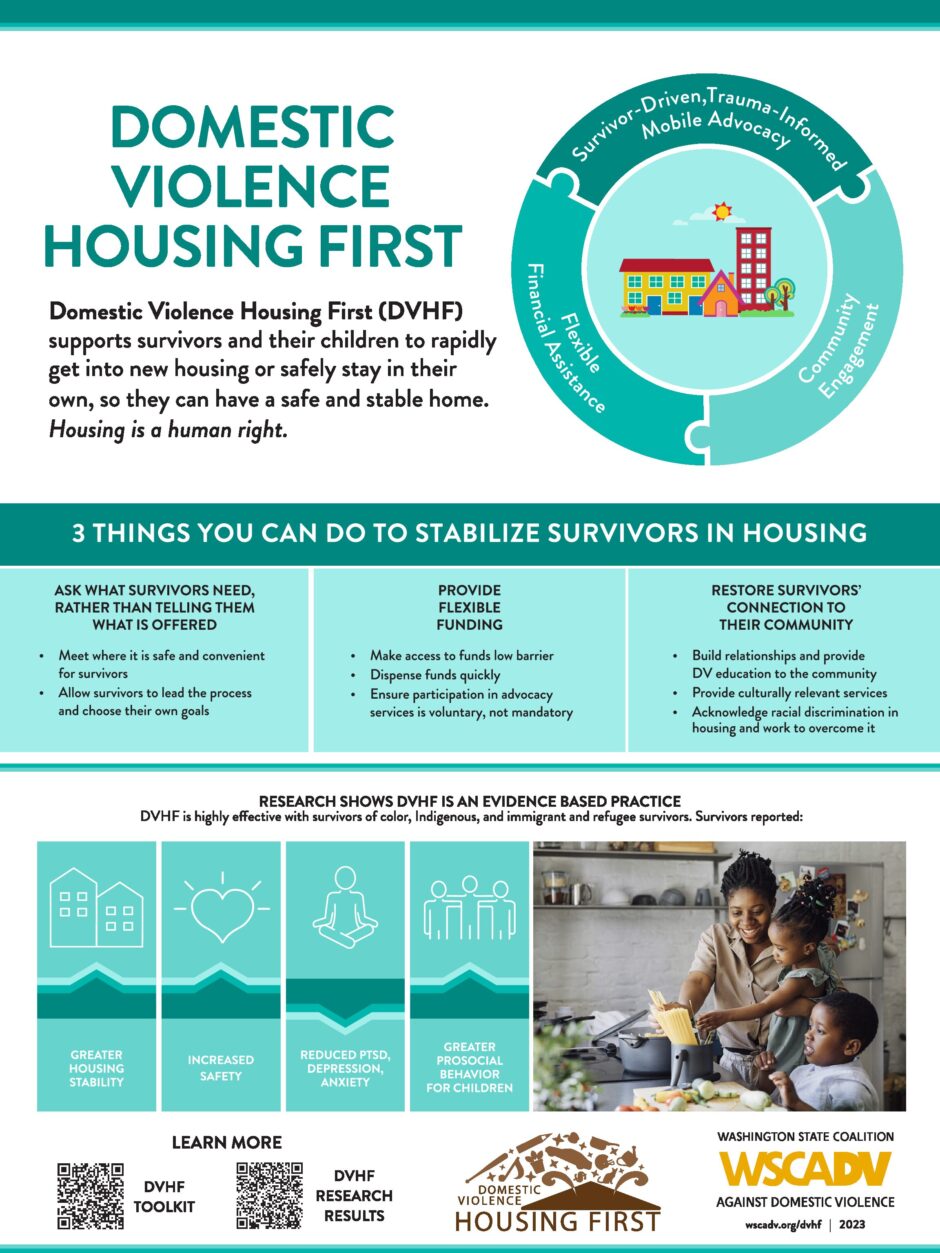
As domestic violence survivors and programs faced a sharp rise in violence, devastating funding shortfalls, racial injustice, and the global economic downturn, WSCADV offered practical support and a shared vision for communities where all people can live and love without fear. WSCADV increased community economic resilience, got cash to survivor households, and invested in new solutions to prevent violence.
Highlights of our programming and public policy wins:
- $66,800,000 in emergency funding to keep the doors open at domestic violence and crime victim programs across the state in the face of unprecedented need and federal funding shortfalls.
- $8,000,000 in ongoing biannual funding for domestic violence programs — the first increase in the state domestic violence services budget in nearly 20 years.
- Passage of the Working Families Tax Credit after 13 years of advocacy! This historic legislation will provide up to $1,200 for low-income Washington State families annually. WSCADV also succeeded in changes to make it safer for survivors to access the tax credit, and worked with Rural People’s Voice to reach survivors in some of the most rural, economically struggling parts of the state. Cash assistance gives a hand up to survivors to get safe and help their children.
- Centering racial, economic, and reproductive justice with statements on the overturning of Roe v Wade, the path to racial justice and freedom for all, and Missing and Murdered Indigenous Relatives week of action.
- “Owning Your Story, Claiming Your Power,” an exciting new guide for survivors and advocates to share their stories and shed light on the all-too-common experience of victim-blaming and child removal by the child welfare system through storytelling.
- Advocating for—and winning!—increased options for economic safety, housing protections for survivors who are renting, reproductive healthcare access, and statewide response for missing Indigenous persons.
Spotlight: Domestic Violence Housing First

Domestic violence is a leading cause of homelessness for women and children. While the public often wonders why someone would return to an abusive relationship, the fact is that survivors who flee to emergency shelter often have nowhere else to go afterwards, besides living in their cars. But no one wants their kids to be homeless.
Since 2009, WSCADV has been creating new solutions to the “hidden homeless” crisis among survivors. WSCADV has emerged as a national leader on safe housing strategies, beginning with the launch of a pilot project in 2010. Over 20 of our member programs – rural, urban, Tribal, culturally-specific, large and small – have partnered with WSCADV over the years as creative peer learners.
Domestic Violence Housing First is an approach that focuses on getting survivors and their children into stable housing as quickly as possible, and then providing the necessary support as they rebuild their lives. Flexible financial assistance is a key part of this approach — funds for survivors to use to best meet their family’s needs for safety, security, and stability, whether for rent, car repairs, or a work uniform.
In 2022, WSCADV and our research partner, Michigan State University, published findings from our long-term evaluation research study, conducted with major support from federal agencies and the Bill and Melinda Gates Foundation. Our study – shows that while domestic violence services provides critical help to survivors, the Domestic Violence Housing First approach is more effective than “services as usual” and leads to housing stability, increased safety, better mental health and reduced PTSD, and children’s pro-social behaviors, over two years. In March 2023, WSCADV hosted a symposium with the Gates Foundation, bringing together national leaders in housing and gender-based violence policy to reflect on these findings and share visions for what this model could mean for survivors nationwide.
The new U.S. National Plan to End Gender-Based Violence includes Domestic Violence Housing First as a recommended strategy and cites WSCADV’s work. Federal agencies, states (such as California and New Jersey), and local governments around the country are adopting and finding ways to fund this approach. Check out WSCADV’s in-depth Domestic Violence Housing First toolkit for domestic violence programs to use to implement this model across the country. Thank you to our amazing member programs for being a part of shaping this pivotal work since 2009.